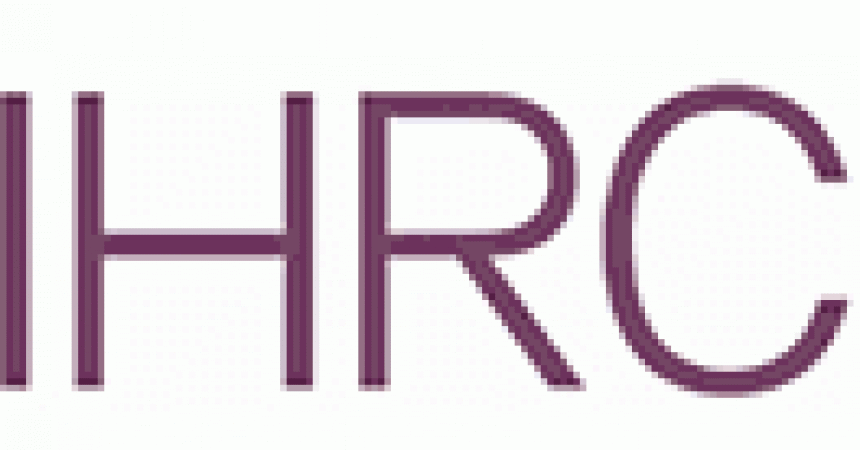
IHRC Discussion Paper Part 6 – European Convention on Human Rights (ECHR)
This is an extract from a discussion paper written by the Irish Human Rights Commission about religious education and human rights. Atheist Ireland is preparing a response to this discussion paper, and we welcome your feedback on it.
European Convention on Human Rights (ECHR)
35. Article 2 of Protocol 1 of the ECHR provides:
“No person shall be denied the right to education. In the exercise of any functions which it assumes in relation to education and to teaching, the State shall respect the right of parents to ensure such education and teaching in conformity with their own religious and philosophical convictions.”
36. In Kjeldsen, Madsen and Pedersen v Denmark [1979] 1 EHRR 711, the ECtHR found that this provision prohibited the State from pursuing an aim of indoctrination that might be considered as not respecting parents’ religious and philosophical convictions (although in that case it did not prohibit the State providing for compulsory sex education in schools).
In Campbell and Cosans v the United Kingdom [1982] 4 EHRR 293, it was found that a parent’s view on corporal punishment could amount to philosophical conviction for the purpose of the Article. The Court, in considering a policy of gradual removal of corporal punishment put forward by the UK government also considered what was meant by “respect” in the Article and found that it created an absolute right rather than one that had to be balanced against the rights of others or which could be gradually achieved:
“Whilst the adoption of the policy referred to clearly foreshadows a move in the direction of the position taken by the applicants, is does not amount to ‘respect’ for their convictions. As is confirmed by the fact that, in the course of the drafting of Article 2 (P1-2), the words ‘have regard to’ were replaced by the word ‘respect’ (see documents CDH (67) 2, p. 163) the latter word means more than ‘acknowledge’ or ‘taken into account’; in addition to a primarily negative undertaking, it implies some positive obligation on the part of the State (see mutatis mutandis, the Marckx judgment of 13 June 1979, series A no. 31, p. 15, par. 31).
This being so, the duty to respect parental convictions in this sphere cannot be overridden by the alleged necessity of striking a balance between the conflicting views involved, nor is the Government’s policy to move gradually towards the abolition of corporal punishment in itself sufficient to comply with this duty.”
37. In the more recent case of FolgerØ v Norway the ECtHR considered the right to education in relation to the curriculum of religious education provided in schools in Norway.13 The particular curriculum adopted imparted knowledge of a wide range of religions but placed emphasis on the Lutheran religion which was the most common religion in the State, and also included an element of instruction in religious practice, over and above mere knowledge.
Although parents were entitled to withdraw their children from any part of the curriculum that was contrary to their own conscience and convictions, the system of exemption was very onerous and complicated and involved the parents giving the school information about their personal religious and philosophical convictions, to justify seeking an exemption.
38. The Court first pointed out that the right to education had to be interpreted in light of Article 8 (respect for private and family life) and Article 9 (Right to freedom of conscience and religion) and made the following general observations in relation to Article 2 of Protocol 1:
- The right to education under Article 2 of Protocol 1 is primarily one that must be upheld by the State and the State is the primary duty holder in this regard. Further the Court has indicated that the term “respect” in relation to the rights of parents denotes not only a negative undertaking not to interfere with the right but also incorporates a positive obligation on the State to vindicate that right.
- Article 2 of Protocol 1 does not distinguish between State and private teaching. Therefore the right is the same irrespective of how, or by whom, the right to education is satisfied.
- Article 2 of Protocol 1 does not permit a distinction to be drawn between religious instruction and other subjects, and requires the State to respect parents’ convictions, be they religious or philosophical, throughout the entire State education programme.
- Parents have the primary responsibility for the education and teaching of their children, but in discharging this duty they are entitled to require the State to respect their religious and philosophical convictions, and this right is linked to the State’s responsibility in relation to the provision of education.
- While Article 2 of Protocol 1 does not prohibit the State from imparting through education knowledge of a religious or philosophical kind, the State must ensure that such information is conveyed in an objective, critical and pluralist manner. In particular the State is forbidden to pursue an aim of indoctrination that might be considered as not respecting parents’ religious and philosophical convictions. The European Court has stated this is a limit that must not be exceeded.
- The Court has stated that even where violation of the rights under Article 2 of Protocol 1 arise at the level of the individual school, nonetheless the competent authorities (the State) must take the utmost care to see that parents’ religious and philosophical convictions are not disregarded by carelessness, lack of judgment or misplaced proselytism.
39. This approach to religious education was also followed in the subsequent case of Hasan and Eylem Zengin v Turkey.







0 Comments
No comments!
There are no comments yet, but you can be first to comment this article.